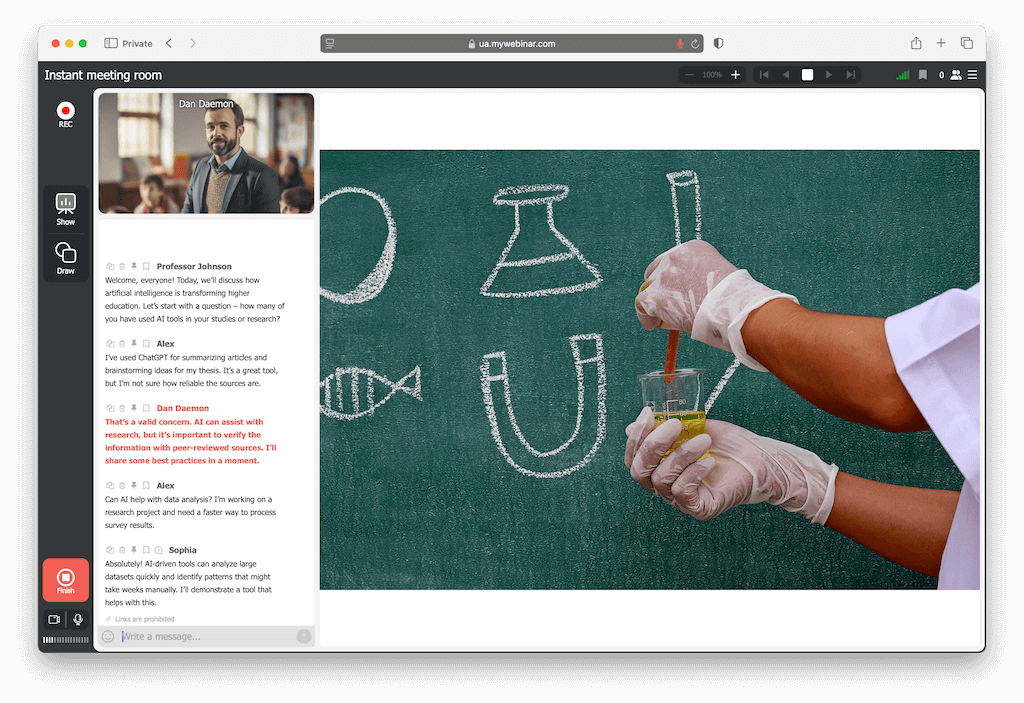
Webinar tools for universities and modern higher education make it easy to deliver lectures, share research, and support faculty in a flexible online format. Students gain access to interactive, on-demand learning, while educators collaborate across institutions and improve teaching methods. Recorded sessions and expert talks help expand academic reach. Webinars are essential because they remove physical and logistical barriers, making quality education and knowledge exchange accessible to all

Discover how automated webinars can transform your business

Organize online lectures, seminars, discussions, academic podcasts, and training courses for students and faculty. Expand the frontiers of higher education with interactive webinars
Proudly crafted and hosted in the EU since 2013.
DMARC monitoring by RUA•Watcher.